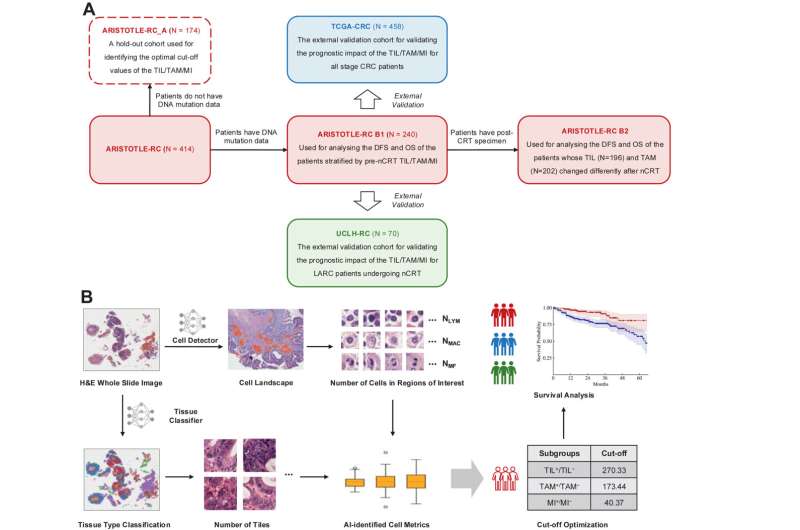In most cancers, the immune landscape surrounding a tumor plays a major role in determining how cancer progresses and how patients respond to therapy, yet the complex interactions between immune cells, tumor cells, and treatment often remain poorly understood.
The new study, published in eBioMedicine, examined routine pathology images using AI to measure the types and abundance of key immune cells surrounding rectal cancer tumors, in order to predict how this ‘tumor microenvironment’ influences survival and disease recurrence in patients.
These images, created from tumor tissue biopsies to make a diagnosis, are manually examined by a pathologist under a microscope. But the researchers wanted to see if AI could be trained to spot key immune cell ‘signatures’ in the images and link them to patient outcomes in a fraction of the time.

